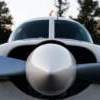Engine Transplant
-
Members Online
- Hector
- Rick Junkin
- Yan X
- Niko182
- ajudson
- exM20K
- Greg Ellis
- ta2too
- DCarlton
- 1980Mooney
- bluehighwayflyer
- Guy123
- Skyland
- Air pirate
- midlifeflyer
- Dammit Bill
- DXB
- daytonabch04
- 201Mooniac
- Kevin Westbrook
- flat_function
- Ragsf15e
- EricJ
- David-M20R
- Boboli
- cruiserflyer
- Bryan G
- Logwes21
- David Lloyd
- Tim Jodice
- TangoTango
- Echo
- eman1200
- Nico1
- tls pilot
- Rmfriday
- Cody Stallings
- PT20J


Recommended Posts